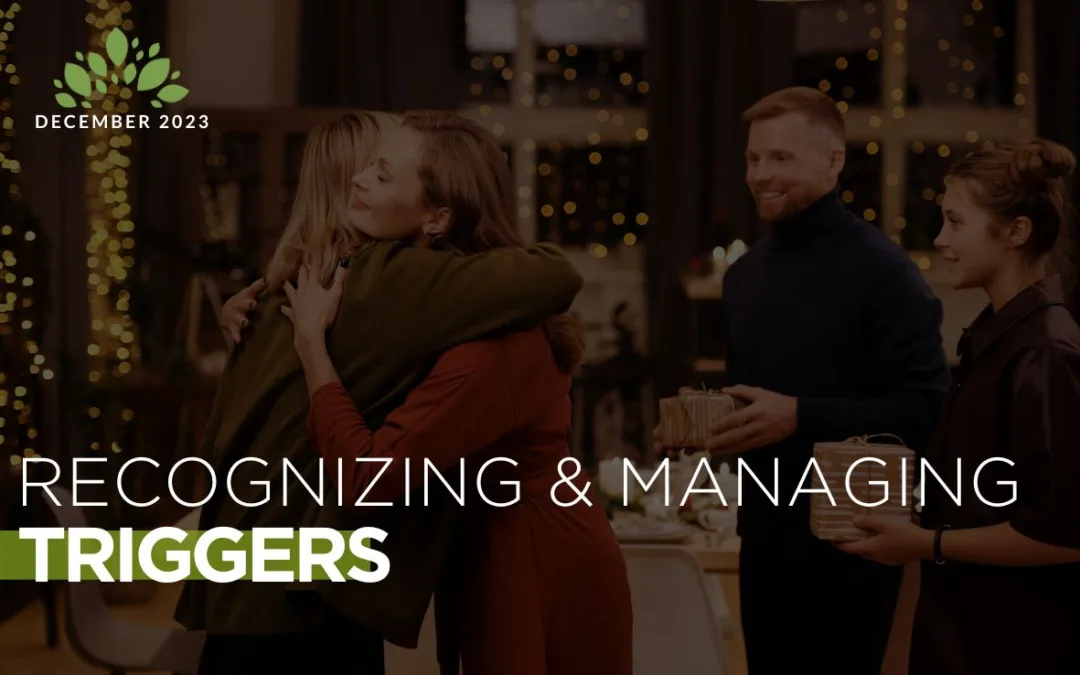Strategies for Recognizing and Managing Triggers in the Moment
The journey to recognizing and managing triggers can be both challenging and deeply personal. Triggers are those emotional landmines that, when activated, can leave us feeling overwhelmed and vulnerable. They often stem from past experiences, traumas, or anxieties, and learning how to navigate them with care and resilience is an essential part of the path toward emotional well-being.
The first step in managing triggers at the moment is self-awareness. Take the time to understand your emotional patterns and identify common triggers. One common source of triggers is your family. Family dynamics can be complex, and certain interactions or behaviors can push your emotional buttons. For instance, criticism from a family member may trigger feelings of insecurity or inadequacy. Alternatively, unresolved conflicts from the past may resurface during family gatherings, leading to heightened stress or anxiety. A therapist or counselor can be a valuable ally in this process, helping you uncover deep-seated triggers and offering guidance on addressing them.
Mindfulness techniques can be highly effective in recognizing triggers as they arise. By staying present in the moment and observing your thoughts and feelings without judgment, you can better understand your reactions and make conscious choices about responding. For instance, if a trigger occurs, you can use mindfulness to pause, acknowledge the trigger, and choose to focus on your breathing to calm your emotions.
Once you’ve identified your triggers, work with a therapist or on your own to develop coping strategies. These strategies may include deep breathing exercises, grounding techniques, or positive self-talk. For example, if you encounter a trigger related to past trauma, you can practice deep breathing to stay grounded and prevent an emotional meltdown or a depressive episode. Having a toolbox of techniques to turn to when a trigger occurs can help you manage your emotions more effectively.
Building a strong support network is crucial for managing triggers. Share your triggers and coping strategies with trusted friends or family members who can provide emotional support when needed. Having someone to lean on during challenging moments can make a significant difference. For instance, if you’ve identified that certain family gatherings trigger your anxiety, you can inform a close friend who can provide reassurance or accompany you to these events.
It’s essential to be kind to yourself as you navigate triggers and their effects on your mental health. Remember that managing triggers is a skill that takes time and practice. Be patient with yourself and seek professional help when needed. For example, if a trigger catches you off guard and you react emotionally, practice self-compassion by acknowledging that everyone has moments of vulnerability and that it’s okay to seek support from a therapist or counselor to work through it.
In conclusion, recognizing and managing triggers at the moment is vital to maintaining good mental health. Seek the guidance of a therapist or counselor to delve into your triggers, develop coping strategies, and build the self-awareness needed to manage them effectively. By incorporating mindfulness, a support network, and self-compassion into your journey, you can take control of your emotional responses and lead a more fulfilling life. If you find yourself struggling with triggers or need professional support, our team at Aspire Counseling Services is just a phone call or text away at (888) 585-7373. We are ready to provide the help and care you deserve.
I’m looking to help
Myself
I’m looking to help
A Loved One
I’m looking to help
A Teen
Receive a Free Consultation Today
We’re Available 24/7 at (888) 585-7373 or Fill Out This Form

Planting Seeds, Saving Lives
Copyright © 2026 Aspire Counseling Services® | Privacy Practices | Terms and Conditions | Powered & Designed by Citryn, LLC

MENU
LOCATIONS

